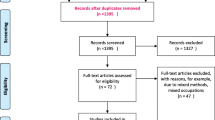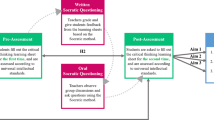Abstract
Medical education has historically been characterized by a master-apprentice relationship. In current medical curricula, this didactic method is only found in the master phase when students enter the hospital for apprenticeships. We plea for a re-appreciation of this method in the bachelor-phase to ensure a proper academic training of young medical students. We describe our experience with the Young Excellence Class (YEC) of the Leyden Academy on Vitality and Ageing, a two weekly discussion group in which medical students train their academic skills while discussing scientific articles under guidance of an experienced scientist. In our experience the results of this method are fourfold. First, the students acquire skills that cannot be learned from books or lectures alone: reading, listening, reasoning and arguing. Second, the matured students learn to guide younger students in how to perform a research project and how to write a scientific report. Third, this method can convince talented students to pursue an academic career, also in disciplines such as ageing that are at first sight less attractive for young medical students. Out of the 15 alumni of the YEC, 12 have continued in a PhD trajectory out of which 9 in the field of ageing. Fourth, students can under guidance contribute to scientific output at the highest level, as was shown by two students who published their research as first authors in a high impact journal. Finally, we have shown that the didactic model can also be successfully employed at a different university. Given the successes and the ability to disseminate the method, we encourage others to also adopt the master-apprentice approach in their scientific field and start their own Young Excellence Class.
Similar content being viewed by others

References
Sinclair S. Making doctors. An institutional apprenticeship. Oxford: Berg, 1997.
O’Malley, C. D. (Ed.), The history of Medical education. UCLA Forum Med. SCi. No. 12, Univ. of California Press, Los Angeles, 1970
Bloom, S. W. The medical school as a social organization: the sources of resistance to change. Med Edu, 1989:23:228–241. doi: 10.1111/j.1365-2923.1989.tb01538.x
Zwiers R, Zantvoord FW, Engelaer FM, van Bodegom D, van der Ouderaa FJ, Westendorp RG. Mortality in former Olympic athletes: retrospective cohort analysis. BMJ. 2012 345:e7456. doi: 10.1136/bmj.e7456.
Hafferty FW, Franks R. The hidden curriculum, ethics teaching, and the structure of medical education. Acad Med 1994;69:861–71.
Hafferty FW. Beyond curriculum reform: confronting medicine’s hidden curriculum. Acad Med 1998;73:403–7.
Cribb A, Bignold S. Towards the reflexive medical school: the hidden curriculum and medical education research. Stud Higher Educ 1999;24: 195–209.
Author information
Authors and Affiliations
Corresponding author
Rights and permissions
About this article
Cite this article
van Bodegom, D., Hafkamp, M. & Westendorp, R.G.J. Using the Master-Apprentice Relationship when Teaching Medical Students Academic Skills: The Young Excellence Class. Med.Sci.Educ. 23 (Suppl 1), 80–83 (2013). https://doi.org/10.1007/BF03341810
Published:
Issue Date:
DOI: https://doi.org/10.1007/BF03341810



